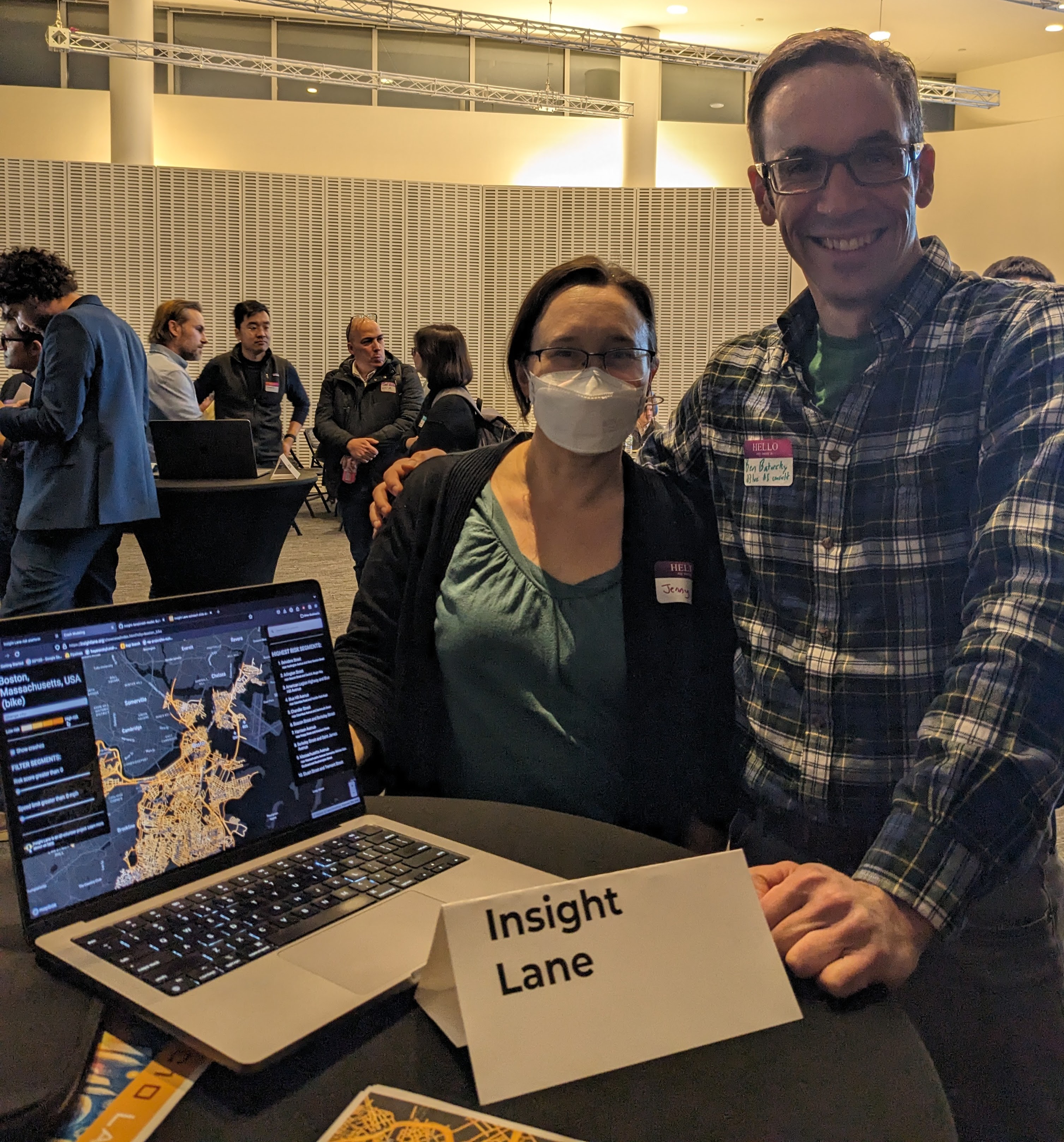I’m still cranking away at part 6 of my LLM series, but I didn’t want you all to think I’d gone dormant again! This week I got the old band together to promote our Insight Lane crash modelling project at MIT Media Lab’s AI in the Built World event.
Look at those smiling faces! We had a lot of interest, though I realize we were surrounded mostly by startups a-pitching. People asked us what our business model is and, you know, I think I answered pretty well. Insight Lane, I feel, is unique in that it is designed to be city agnostic, even dataset agnostic. It’s a flexible platform that is optimized for measuring crash risk on road networks. We’ve had people come in from all over to onboard their cities and it’s a pretty streamlined process. This, we feel, is the “base” on which a lot of much more complex things can be built.
Business model-wise - it probably means a managed service model. The open source platform will be free and open forever. But if a company or a government wanted something specific to be built on top of it with their use-case in mind, that could potentially bring in money. Or, at least, data. And data, oil, etc.
The event itself was interesting! It was a really fascinating blend of panelists:
- Jason Snyder, CIO, Commonwealth of Massachusetts
- Kent Larson - Director, City Science group at MIT
- Jit Kee Chen - EVP & CDO, Suffolk Technology
- Marc Nezet - CDO, Nemetschek
- Usman Shuja - CEO, Bluebeam
- Ramesh Raskar - Associate Director, MIT Media Lab
There was an interesting representation of construction and architecture (i.e. Nemetschek, Suffolk Tech, Bluebeam) and (I thought) a lack of representation of government entities. When I think “built world” I think of cities, which typically have a lot of government involvement in the operations and advancement. The representation of construction/building experts was interesting to me and there was some interesting commentary on land use and streamlining development processes.
I felt there was a bit of a lack of examples being pointed to as to how AI is changing the landscape. Autonomous agents and agent-based simulations were mentioned multiple times, but with the caveat that these systems are still in need of updating.
Ramesh mentioned the typical pathway for new technology; improve, transform, disrupt. It seems like right now, for agent-based models, we’re at the improvement phase.
I also liked a comment from Ramesh, again (I think!) about how the largest taxi company in the world right now doesn’t own any taxis (Uber, 13% market share). The same is true for the largest hotel company (Airbnb, in terms of listings).
Interesting stuff! And more to come for Insight Lane, I’m sure of it!
 Ben
Ben 
 Fine-tuning ChatGPT for Dermatology
Fine-tuning ChatGPT for Dermatology